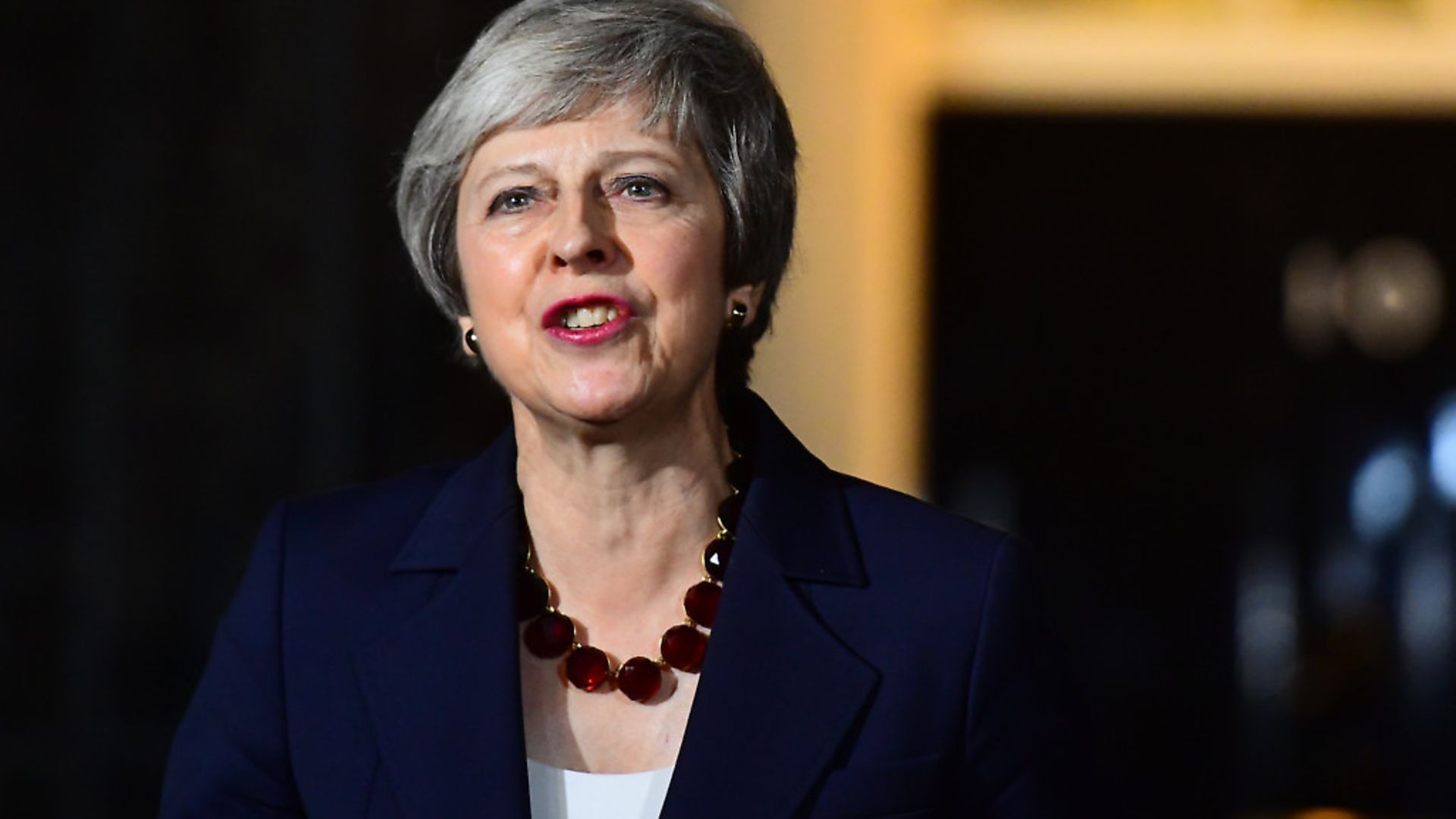
A referendum on May’s deal versus remain is the only option, says ANDREW ADONIS
‘To be or not to be’ is indeed the question if there is to be a People’s Vote – whether or not England will continue to be fundamentally European and a responsible member of the British Isles.
The actual choice on the ballot paper will be more precise and the referendum will embrace the whole UK. But if Hamlet taught us anything, it is that human society is an unending struggle against tragedy. Brexit is an English nationalist tragedy and, as in Hamlet, the only comedy involves grave-diggers.
As the Brexiters rail against the EU, Ireland and Scotland, the raw English nationalism driving Brexit is ever more exposed. The mask slipped completely when Dominic Raab, fresh from discovering the port of Calais, resigned as Brexit secretary in protest at a deal he had just negotiated alongside Theresa May, accusing the EU of ‘bullying’ and ‘blackmail’.
A week earlier Raab made his extraordinary bid to Michel Barnier to scrap the Irish backstop completely, as if Britain had no responsibilities whatever for the peace and stability of Northern Ireland.
This behaviour, exemplifying all the prejudices and phobias of the Brexiters, led Bobby McDonagh, the former Irish ambassador to the UK, to crack maybe the best Brexit joke so far: ‘Dominic Raab’s resignation in protest at a deal he was himself responsible for negotiating is like robbing a bank and then performing a citizen’s arrest on yourself on the way out.’
Brexit is a desperate struggle between different conceptions of England. Between an England which is a collegiate and responsible member of the two democratic unions which dominate our international life – the United Kingdom and the European Union. Or an England which rejects both unions, appealing to a better yesterday of imperial sovereignty and chauvinism, and instituting a political/cultural war which will overwhelm us for decades to come. A People’s Vote is the last best chance to call a halt.
As for the precise question for the People’s Vote next year, only one is credible: ‘Do you wish to stay in the European Union or do you wish to leave on the terms agreed by Theresa May?’
There is an irrefutable reason why this has to be the question. Parliament has a moral and political duty not to put to the people any proposal which simply cannot be implemented. No-deal is in this category.
We know that no-deal can’t be implemented because the government has told us so.
It spent the summer publishing ‘technical papers’ setting out the consequences to the UK of leaving the EU without a treaty either to continue or to replace any of the 20,000 pieces of European law and treaty provisions, governing everything from our aviation and ports to food and medicine standards.
Moreover, without a deal there has to be a hard border in Ireland because the 208 crossing points between Ireland and Northern Ireland, currently invisible as a border thanks to the Good Friday Agreement (GFA), become the external tariff, customs and immigration border of the European Union. This will necessitate hard border infrastructure and breach the GFA, which is an international treaty and the basis of peace in the region.
Then there is the little matter of the £39bn exit fee which May has agreed to cover our EU liabilities. I love pointing out to Nigel Farage, who wants us to pay the EU nothing, that this is impossible because of his £73,000 a year pension for two decades as an MEP. No deal, no pension. We can’t have Nigel as a burden on the state, particularly now his adult children have German passports so may not even be in the country to look after him.
So the question has to be ‘May’s deal versus Remain’. If she had the slightest notion of leadership and the national interest, she would now call a referendum on this question. She would say: ‘I have done my best to negotiate a workable Brexit. Now you decide whether it is to be or not to be. That is the question.’
Warning: Illegal string offset 'link_id' in /mnt/storage/stage/www/wp-includes/bookmark.php on line 357
Notice: Trying to get property 'link_id' of non-object in /mnt/storage/stage/www/wp-includes/bookmark.php on line 37






